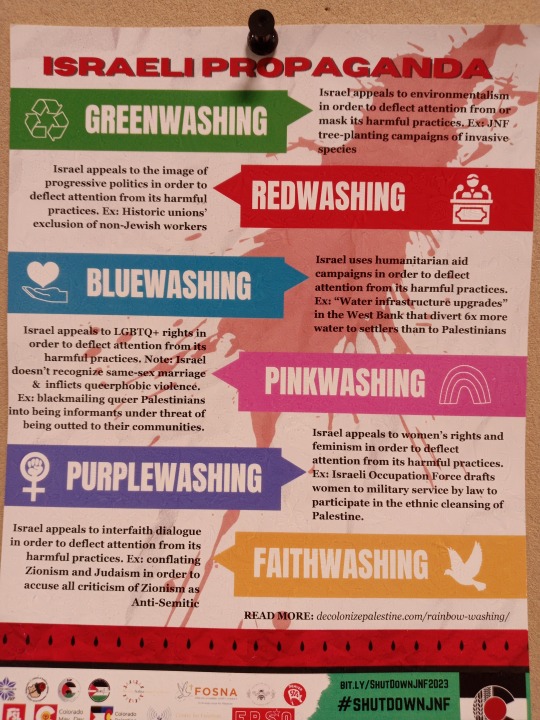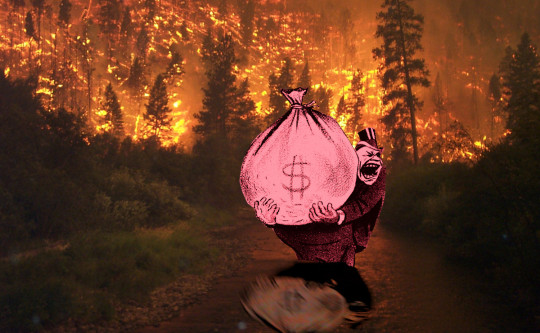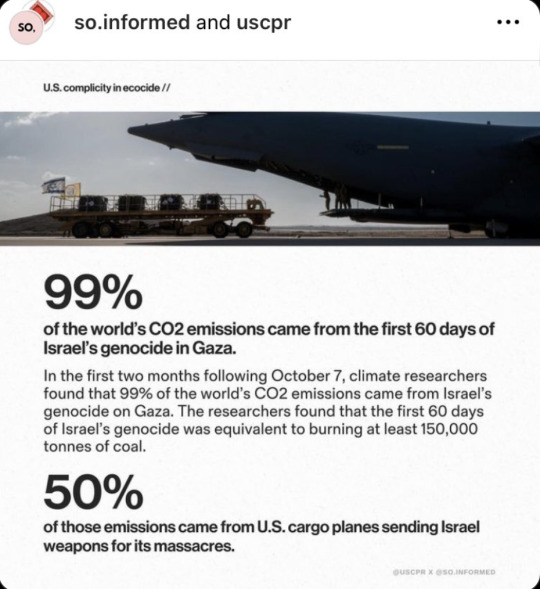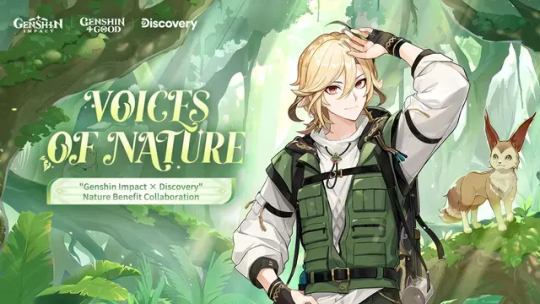#greenwasher
Explore tagged Tumblr posts
Text
These artpieces look like pair profile pictures-


Also first ever drawing of them,so BH looks rlly different :_>

#toontown#cogblr#toontown event horizon#ttevh#bondholder#greenwasher#toontown cogs#husbands core#i fell in love with this pairing in seconds#“he makes me laugh” ahh couple/j#jk jk i rlly love them both#i wish i could post it in twitter#but cant bc of my personal stuff😭💔#art#gay#bondwasher#save me bondwasher#ttcc#<putting it here bc most of ttcc fans also know ttevh
70 notes
·
View notes
Text










bondholder dump
#toontown#my art#toontown cogs#toontown event horizon#ttevh#bondholder#ttr#toontown rewritten#club president#greenwasher
125 notes
·
View notes
Text

Assets for another content repack! Link to download and stickers replaced are as follows:
Winking deer -> Bondholder
Sus beaver -> Pitchman
Disgust gator -> Blamestormer
Grin duck -> Greenwasher
Heart rabbit -> Change Agent
Link to download is here!
#Toonblr#Toontown#Toontown: Event Horizon#Toontown: Corporate Clash#Bondholder#Pitchman#Blamestormer#Greenwasher#Change Agent
100 notes
·
View notes
Text
I had the weirdest dream last night and for some reason the green washer from toontown event horizon and he was in some way contry/southern. I have been thinking about this all day and have had no one to talk to about it. Please.
#idk why but i love this hc i made.#also hi yeah i like more than just corprate clash HAHAHA#the dream was weird af tho#still confused#toontown#toontown event horizon#ttevh#greenwasher#ttevh greenwasher#im tired#mac.yaps
5 notes
·
View notes
Text
#kamala harris#jasmine sherman#tim walz#lakota people#lakota project#protect women#protect nature#protect wildlife#important#important post#us politics#decolonization#decolonialism#decolonize your mind#decoloniality#decolonize#child safety#child slavery#greenwashing#child labor#child labour laws#anti nestle#vote for jasmine Sherman#tanda blubear
1K notes
·
View notes
Text

Transcript & Alt ID: Poster labeled 'Israeli Propaganda' that details various types of propaganda tactics, each with a color coordinated label.
Greenwashing - Israel appeals to environmentalism in order to deflect attention from or mask its harmful practices. EX: JNF tree-planting campaigns of invasive species.
Redwashing - Israel appeals to the image of progressive politics on order to deflect attention from its harmful practices. EX: Historic exclusion of non-Jewish workers from unions
Bluewahing - Israel uses humanitarian aid campaigns in order to deflect attention from its harmful practices. EX: 'Water infrastructure upgrades' that divert 6x more water to settlers than to Palestinians
Pinkwashing - Israel appeals to LGBTQ+ rights in order to deflect attention from its harmful practices. EX: blackmailing queer Palestinians into being informants under the threat of being outed to their communities. (transcriber's note: I don't feel this is a good example of pinkwashing, I think that mentioning that Israel has a habit of promoting itself as a safe haven for LGBT+ folks, and promoting Palestine solely as homophobic, in order to justify their actions is a more appropriate example)
Purplewashing - Israel appeals to women's rights and feminism in order to deflect attention from its harmful ideals. EX: Israeli Occupation Force drafts woman to military service by law to participate in the ethnic cleansing of Palestine.
Faithwashing - Israel appeals to interfaith dialogue in order to deflect attention from its harmful practices. EX: conflating Zionism and Judaism in order to accuse all criticism of Zionism as anti-semitic.
#gaza#palestine#important stuff#propaganda#reference#greenwashing#redwashing#bluewashing#pinkwashing#purplewashing#faithwashing#protests#columbia university#long post#rafah#yemen#syria
2K notes
·
View notes
Text
Greenwashing set Canada on fire

On September 22, I'm (virtually) presenting at the DIG Festival in Modena, Italy. On September 27, I'll be at Chevalier's Books in Los Angeles with Brian Merchant for a joint launch for my new book The Internet Con and his new book, Blood in the Machine.

As a teenager growing up in Ontario, I always envied the kids who spent their summers tree planting; they'd come back from the bush in September, insect-chewed and leathery, with new muscle, incredible stories, thousands of dollars, and a glow imparted by the knowledge that they'd made a new forest with their own blistered hands.
I was too unathletic to follow them into the bush, but I spent my summers doing my bit, ringing doorbells for Greenpeace to get my neighbours fired up about the Canadian pulp-and-paper industry, which wasn't merely clear-cutting our old-growth forests – it was also poisoning the Great Lakes system with PCBs, threatening us all.
At the time, I thought of tree-planting as a small victory – sure, our homegrown, rapacious, extractive industry was able to pollute with impunity, but at least the government had reined them in on forests, forcing them to pay my pals to spend their summers replacing the forests they'd fed into their mills.
I was wrong. Last summer's Canadian wildfires blanketed the whole east coast and midwest in choking smoke as millions of trees burned and millions of tons of CO2 were sent into the atmosphere. Those wildfires weren't just an effect of the climate emergency: they were made far worse by all those trees planted by my pals in the eighties and nineties.
Writing in the New York Times, novelist Claire Cameron describes her own teen years working in the bush, planting row after row of black spruces, precisely spaced at six-foot intervals:
https://www.nytimes.com/2023/09/15/opinion/wildfires-treeplanting-timebomb.html
Cameron's summer job was funded by the logging industry, whose self-pegulated, self-assigned "penalty" for clearcutting diverse forests of spruce, pine and aspen was to pay teenagers to create a tree farm, at nine cents per sapling (minus camp costs).
Black spruces are made to burn, filled with flammable sap and equipped with resin-filled cones that rely on fire, only opening and dropping seeds when they're heated. They're so flammable that firefighters call them "gas on a stick."
Cameron and her friends planted under brutal conditions: working long hours in blowlamp heat and dripping wet bulb humidity, amidst clouds of stinging insects, fingers blistered and muscles aching. But when they hit rock bottom and were ready to quit, they'd encourage one another with a rallying cry: "Let's go make a forest!"
Planting neat rows of black spruces was great for the logging industry: the even spacing guaranteed that when the trees matured, they could be easily reaped, with ample space between each near-identical tree for massive shears to operate. But that same monocropped, evenly spaced "forest" was also optimized to burn.
It burned.
The climate emergency's frequent droughts turn black spruces into "something closer to a blowtorch." The "pines in lines" approach to reforesting was an act of sabotage, not remediation. Black spruces are thirsty, and they absorb the water that moss needs to thrive, producing "kindling in the place of fire retardant."
Cameron's column concludes with this heartbreaking line: "Now when I think of that summer, I don’t think that I was planting trees at all. I was planting thousands of blowtorches a day."
The logging industry committed a triple crime. First, they stole our old-growth forests. Next, they (literally) planted a time-bomb across Ontario's north. Finally, they stole the idealism of people who genuinely cared about the environment. They taught a generation that resistance is futile, that anything you do to make a better future is a scam, and you're a sucker for falling for it. They planted nihilism with every tree.
That scam never ended. Today, we're sold carbon offsets, a modern Papal indulgence. We are told that if we pay the finance sector, they can absolve us for our climate sins. Carbon offsets are a scam, a market for lemons. The "offset" you buy might be a generated by a fake charity like the Nature Conservancy, who use well-intentioned donations to buy up wildlife reserves that can't be logged, which are then converted into carbon credits by promising not to log them:
https://pluralistic.net/2020/12/12/fairy-use-tale/#greenwashing
The credit-card company that promises to plant trees every time you use your card? They combine false promises, deceptive advertising, and legal threats against critics to convince you that you're saving the planet by shopping:
https://pluralistic.net/2021/11/17/do-well-do-good-do-nothing/#greenwashing
The carbon offset world is full of scams. The carbon offset that made the thing you bought into a "net zero" product? It might be a forest that already burned:
https://pluralistic.net/2022/03/11/a-market-for-flaming-lemons/#money-for-nothing
The only reason we have carbon offsets is that market cultists have spent forty years convincing us that actual regulation is impossible. In the neoliberal learned helplessness mind-palace, there's no way to simply say, "You may not log old-growth forests." Rather, we have to say, "We will 'align your incentives' by making you replace those forests."
The Climate Ad Project's "Murder Offsets" video deftly punctures this bubble. In it, a detective points his finger at the man who committed the locked-room murder in the isolated mansion. The murderer cheerfully admits that he did it, but produces a "murder offset," which allowed him to pay someone else not to commit a murder, using market-based price-discovery mechanisms to put a dollar-figure on the true worth of a murder, which he duly paid, making his kill absolutely fine:
https://pluralistic.net/2021/04/14/for-sale-green-indulgences/#killer-analogy
What's the alternative to murder offsets/carbon credits? We could ask our expert regulators to decide which carbon intensive activities are necessary and which ones aren't, and ban the unnecessary ones. We could ask those regulators to devise remediation programs that actually work. After all, there are plenty of forests that have already been clearcut, plenty that have burned. It would be nice to know how we can plant new forests there that aren't "thousands of blowtorches."
If that sounds implausible to you, then you've gotten trapped in the neoliberal mind-palace.
The term "regulatory capture" was popularized by far-right Chicago School economists who were promoting "public choice theory." In their telling, regulatory capture is inevitable, because companies will spend whatever it takes to get the government to pass laws making what they do legal, and making competing with them into a crime:
https://pluralistic.net/2022/06/13/public-choice/#ajit-pai-still-terrible
This is true, as far as it goes. Capitalists hate capitalism, and if an "entrepreneur" can make it illegal to compete with him, he will. But while this is a reasonable starting-point, the place that Public Choice Theory weirdos get to next is bonkers. They say that since corporations will always seek to capture their regulators, we should abolish regulators.
They say that it's impossible for good regulations to exist, and therefore the only regulation that is even possible is to let businesses do whatever they want and wait for the invisible hand to sweep away the bad companies. Rather than creating hand-washing rules for restaurant kitchens, we should let restaurateurs decide whether it's economically rational to make us shit ourselves to death. The ones that choose poorly will get bad online reviews and people will "vote with their dollars" for the good restaurants.
And if the online review site decides to sell "reputation management" to restaurants that get bad reviews? Well, soon the public will learn that the review site can't be trusted and they'll take their business elsewhere. No regulation needed! Unleash the innovators! Set the job-creators free!
This is the Ur-nihilism from which all the other nihilism springs. It contends that the regulations we have – the ones that keep our buildings from falling down on our heads, that keep our groceries from poisoning us, that keep our cars from exploding on impact – are either illusory, or perhaps the forgotten art of a lost civilization. Making good regulations is like embalming Pharaohs, something the ancients practiced in mist-shrouded, unrecoverable antiquity – and that may not have happened at all.
Regulation is corruptible, but it need not be corrupt. Regulation, like science, is a process of neutrally adjudicated, adversarial peer-review. In a robust regulatory process, multiple parties respond to a fact-intensive question – "what alloys and other properties make a reinforced steel joist structurally sound?" – with a mix of robust evidence and self-serving bullshit and then proceed to sort the two by pantsing each other, pointing out one another's lies.
The regulator, an independent expert with no conflicts of interest, sorts through the claims and counterclaims and makes a rule, showing their workings and leaving the door open to revisiting the rule based on new evidence or challenges to the evidence presented.
But when an industry becomes concentrated, it becomes unregulatable. 100 small and medium-sized companies will squabble. They'll struggle to come up with a common lie. There will always be defectors in their midst. Their conduct will be legible to external experts, who will be able to spot the self-serving BS.
But let that industry dwindle to a handful of giant companies, let them shrink to a number that will fit around a boardroom table, and they will sit down at a table and agree on a cozy arrangement that fucks us all over to their benefit. They will become so inbred that the only people who understand how they work will be their own insiders, and so top regulators will be drawn from their own number and be hopelessly conflicted.
When the corporate sector takes over, regulatory capture is inevitable. But corporate takeover isn't inevitable. We can – and have, and will again – fight corporate power, with antitrust law, with unions, and with consumer rights groups. Knowing things is possible. It simply requires that we keep the entities that profit by our confusion poor and thus weak.
The thing is, corporations don't always lie about regulations. Take the fight over working encryption, which – once again – the UK government is trying to ban:
https://www.theguardian.com/technology/2023/feb/24/signal-app-warns-it-will-quit-uk-if-law-weakens-end-to-end-encryption
Advocates for criminalising working encryption insist that the claims that this is impossible are the same kind of self-serving nonsense as claims that banning clearcutting of old-growth forests is impossible:
https://twitter.com/JimBethell/status/1699339739042599276
They say that when technologists say, "We can't make an encryption system that keeps bad guys out but lets good guys in," that they are being lazy and unimaginative. "I have faith in you geeks," they said. "Go nerd harder! You'll figure it out."
Google and Apple and Meta say that selectively breakable encryption is impossible. But they also claim that a bunch of eminently possible things are impossible. Apple claims that it's impossible to have a secure device where you get to decide which software you want to use and where publishers aren't deprive of 30 cents on every dollar you spend. Google says it's impossible to search the web without being comprehensively, nonconsensually spied upon from asshole to appetite. Meta insists that it's impossible to have digital social relationship without having your friendships surveilled and commodified.
While they're not lying about encryption, they are lying about these other things, and sorting out the lies from the truth is the job of regulators, but that job is nearly impossible thanks to the fact that everyone who runs a large online service tells the same lies – and the regulators themselves are alumni of the industry's upper eschelons.
Logging companies know a lot about forests. When we ask, "What is the best way to remediate our forests," the companies may well have useful things to say. But those useful things will be mixed with actively harmful lies. The carefully cultivated incompetence of our regulators means that they can't tell the difference.
Conspiratorialism is characterized as a problem of what people believe, but the true roots of conspiracy belief isn't what we believe, it's how we decide what to believe. It's not beliefs, it's epistemology.
Because most of us aren't qualified to sort good reforesting programs from bad ones. And even if we are, we're probably not also well-versed enough in cryptography to sort credible claims about encryption from wishful thinking. And even if we're capable of making that determination, we're not experts in food hygiene or structural engineering.
Daily life in the 21st century means resolving a thousand life-or-death technical questions every day. Our regulators – corrupted by literally out-of-control corporations – are no longer reliable sources of ground truth on these questions. The resulting epistemological chaos is a cancer that gnaws away at our resolve to do anything about it. It is a festering pool where nihilism outbreaks are incubated.
The liberal response to conspiratorialism is mockery. In her new book Doppelganger, Naomi Klein tells of how right-wing surveillance fearmongering about QR-code "vaccine passports" was dismissed with a glib, "Wait until they hear about cellphones!"
https://pluralistic.net/2023/09/05/not-that-naomi/#if-the-naomi-be-klein-youre-doing-just-fine
But as Klein points out, it's not good that our cellphones invade our privacy in the way that right-wing conspiracists thought that vaccine passports might. The nihilism of liberalism – which insists that things can't be changed except through market "solutions" – leads us to despair.
By contrast, leftism – a muscular belief in democratic, publicly run planning and action – offers a tonic to nihilism. We don't have to let logging companies decide whether a forest can be cut, or what should be planted when it is. We can have nice things. The art of finding out what's true or prudent didn't die with the Reagan Revolution (or the discount Canadian version, the Mulroney Malaise). The truth is knowable. Doing stuff is possible. Things don't have to be on fire.



If you'd like an essay-formatted version of this post to read or share, here's a link to it on pluralistic.net, my surveillance-free, ad-free, tracker-free blog:
https://pluralistic.net/2023/09/16/murder-offsets/#pulped-and-papered
#pluralistic#logging#pulp and paper#ontario#greenwashing#a market for lemons#incentives matter#capitalism#late-stage capitalism#climate emergency#wildfires#canada#canpoli#ontpoli#carbon offsets#self-regulation#nerd harder#epistemological chaos#regulatory capture#Claire Cameron#pines in lines
3K notes
·
View notes
Text




ITS COG FEST I THINK ?? jk jk i got a bunch of art trade and was asked to draw a bunch of TOON X cog bosses and cog pairs <3
#ttcc#toontown corporate clash#ttevh boundholder#ttevh#toontown event horizon#ttevh greenwasher#TTCC Senior VP#TTcc cfo#chip revvington#chainsaw consultant#ttcc brian#prethinker#chainthinker#Bondwasher#allan bravecog#chris p dolair#ttcc oc
183 notes
·
View notes
Text
things that don’t make you punk:
❌ cool jacket
❌ music taste
❌ politics
things that DO make you punk:
✅ having passionate opinions on how much “vegan leather” SUCKSSSSSSSSS
#punk#diy punk#alt#alternative#greenwashing#sustainable fashion#i’m joking btw. yes music taste yes politics and sure why not cool jacket
129 notes
·
View notes
Text
Whenever an existing faux product is described as "vegan product" my hackles raise.
It's not vegan leather, it's pleather.
It's not vegan butter, it's margarine.
It's not vegan cashmere, it's acrylic.
It's not vegan fur, it's faux fur. Also probably an acrylic or rayon blend.
It's not vegan silk, it's polyester.
We haven't gotten to calling vegetable shortening "vegan lard" yet, but given the butter situation...
Call a spade a spade and stop greenwashing! Just admit it's plastic! Just admit you've prioritized one kind of animal life over the other! Stop calling it vegan when it's just plastic, you're driving people to destroy the planet with the "more moral" option when it's NOT.
You can enjoy margarine, that's fine, just be up front about it being in the dish so people know what they're eating by a familiar name.
#if you want to be vegan then just don't get leather or fur#don't get the plastic substitute either. just avoid the style#commit or don't but just stop trying to hide your synthetics consumption#plastic#greenwashing#Phoenix Talks#vent post
737 notes
·
View notes
Text
Israel pink washing this, israel brown washing that,
Okay but have you considered that you might be reverse colour washing Israel?
Random Jews and Israeli's online speaking about their queer experiences is not pink washing. Pink washing cannot be done at the indivdual level. Claiming that queer Jews and Israeli's are pink washing is reverse pink washing.
Calling all jews white or Israel a "white" state is reverse brown washing. Jews and Israeli's of colour exist. And we deserve to be more than an argument you keep in your bag.
Lying about Israel's emmissions is reverse green washing. Example;

Israel has emmited 281,000 metric tons of carbon dioxide equivalent within the first 2 months of the war. Globally each year, over 35 billion metric tons of carbon dioxide and carbon dioxide equivalent gets emitted. Assuming they meant within 2 months as well and not a whole year, taking the 2019 figure of 37.04 billion metric tons, two months of global emissons are 6.173 billion tons.
Israel hasn't even reached the billions. Israel's emissions from the first two months of war is 0.0045 of global emissions within 2 months.
Its not even one percent.
355 notes
·
View notes
Text



I need to post more on this site
34 notes
·
View notes
Text

Got the honor of working on some cogs for Horizon Talks 4! Got to concept the Blamestormer and the Bondholder.
#Toonblr#Toontown#Toontown: Event Horizon#Change Agent#Greenwasher#Blamestormer#Bondholder#Pitchman#koi.jpg#koi.dev
106 notes
·
View notes
Note
https://www.tumblr.com/endlessmuse/772765776482549760/i-dont-want-to-be-completely-pessimistic-and-i?source=share
this is the response from the pro palestine crowd.
i am absolutely heartbroken for palestinians. so much destruction and this is the response from the people who pretend to care about them. evil


I mean as much as “Israel destroyed the Palestinians olive trees” is a ecofash nationalist dogwhistle mostly because there are no olives trees in those cities it’s symbolic and a form of superseccionism and poisoned soil is just “jews poisoning wells” but
Op is right there is not much to celebrate, people died and the Likud got a slap on the wrist for killing both Gazans and letting their own citizens die in captivity
“they need doctors not canned goods” there ARE doctors you uneducated brit. “Rebuild their beautiful democracy” lmao hopefully those new schools won’t teach kids to be martyrs that kill Jews but yeah
so actually anon this is mostly compassion

This is what OP is actually sad about, they’re just projecting their depression on Gaza
#antisemitism#leftist antisemitism#leftist brainrot#leftist hypocrisy#blocklist#dogwhistles#greenwashing
76 notes
·
View notes
Text
Genshin Impact × Discovery Collaboration Benefit Short Documentary "Voices of Nature"

Traveler, the Discovery Collaboration Benefit Short Documentary "Voices of Nature" is online!
Nature's been talking to us all along. Have you been hearing it?
youtube
#genshin impact#genshin impact updates#genshin impact news#official#whoops forgot to post this one#great example of sustainability communication but i have to wonder what hoyo themselves is doing#like what's the footprint of the hoyo hq#because donating is nice but if they're not actually operating sustainably then this is greenwashing#Youtube
174 notes
·
View notes
Text
Because the olive tree has long been symbolic of the Indigenous Palestinian presence, the JNF plants mostly pine trees, which do not carry a Palestinian political meaning. Hundreds of thousands of pine trees were planted in the desert, where only a few thorny bushes had earlier grown, necessitating the diversion of water from its natural paths to irrigate them. Pine seeds are easily dispersed, by wind or fire, and saplings grew in open areas, where they took over the previously barren space. Trees are nature’s “green lung,” generating oxygen and filtering pollutants. However, following massive and deadly wildfires in northern Israel, environmental studies have shown that the Zionist afforestation project contributed to environmental devastation. Ecologists today are recommending that Israelis plant fewer trees and limit themselves to replanting with native trees. This is because the new Israeli forests were causing more warming than cooling, as their dense tree canopies absorb solar radiation, whereas the lighter colors of the native desert plants had once reflected the sun’s heat away from the soil.
[...]
An Indigenous people attuned to the land would have tended it more carefully, seeking to preserve rather than transform it. Instead, the JNF’s determination to “make the desert bloom” has been detrimental to Palestine’s very nature, and its soil, which once sustained the people. Where once there was sustainable biodiversity, Israel supplanted a monoculture of pine trees. The very geography of Palestine today shows the ugly face of apartheid: recently planted “forests” within the 1948 borders, irrigated by water from diverted aquifers under parched Palestinian fields, and strips of bare land heavily sprayed with herbicides surrounding the majority-Palestinian areas.
Nada Elia, Greater Than the Sum of Our Parts: Feminism, Inter/nationalism, and Palestine
307 notes
·
View notes